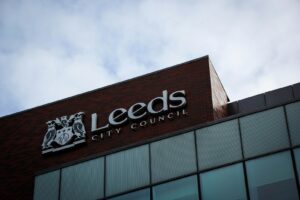Despite research showing more than £27m has been spent on bids for levelling up funding, dozens of councils were dismissed by the government.
Figures obtained by UK news agency, NationalWorld, shows local and regional leaders have hit out against the process of competitive bidding for funds.
Described as a ‘lottery’ which ‘pitches town against town’, dozens of councils have spent time and money producing bids for funds which have failed to be paid out by the government.
Experts have revealed councils have spent at least £26.9m, however the figure is estimated to be higher since it doesn’t consider the cost of time spent by council staff working on bid pitches.
When it comes to the winning bids, various local authority figures have raised concerns about the criteria they are judged by. Additionally, senior leaders have also reported a lack of feedback on why certain bids were unsuccessful.
Announced in 2019, the Department of Levelling Up, Housing and Communities has run several competitive bidding processes, with councils producing proposals for funding based on specific criteria to receive money from central government.
Research completed by NationalWorld was collected through Freedom of Information requests and revealed Rossendale Borough Council, situated in the North-West, is among the highest spending local authorities and has not been awarded any funding despite spending more than £600K.
Rossendale has received £275K from central government towards producing the bids, however the authority was still required to spend large amounts of it’s budget.
Andrew Burns, Associate Director at the Chartered Institute of Public Finance and Accountancy, said: ‘Councils are under huge pressures at the moment, while only the biggest and most well-off can afford to spend time and money on putting together quality bids, which is deeply unfair.
‘This also diverts precious resources away from other work such as tackling inflation, adult social care reforms and ensuring services are stable and high quality.
‘Competitive bidding represents poor value for money and unfortunately often results in those that most need the funding getting the least.’
Photo by Kelly Sikkema

















Leave a Reply